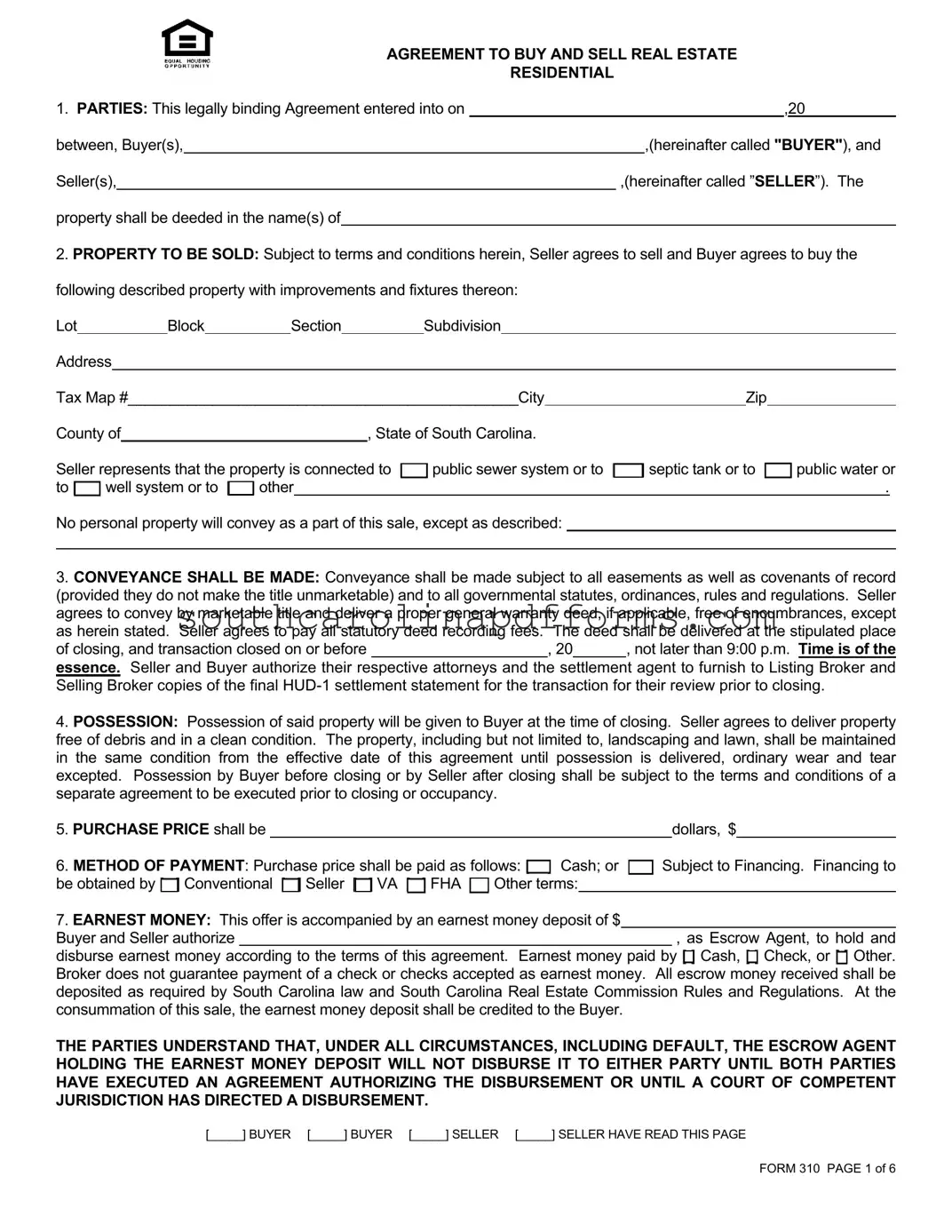The South Carolina Real Estate Contract 310 form serves as a comprehensive document outlining the terms and conditions for the sale and purchase of residential real estate within the state. This agreement is initiated between the buyer(s) and seller(s), establishing their respective roles and responsibilities. The form details the specific property being sold, including its address and tax map number, and clarifies the type of utilities connected to the property. Key aspects of the agreement include the conveyance of the property, ensuring a marketable title and the delivery of a general warranty deed. The contract also addresses possession, stating that the buyer will take possession at closing, and outlines the purchase price along with the method of payment, which may include cash or financing options. An earnest money deposit is required, and the form stipulates the handling of this deposit by an escrow agent. Other significant elements include loan processing contingencies, closing costs, and the condition of the property, which encompasses inspections and disclosures. The agreement also touches on adjustments for taxes and other assessments, risk of loss provisions, and the potential for mediation in case of disputes. Overall, the South Carolina Real Estate Contract 310 form is designed to provide clarity and protection for both parties involved in the transaction.
